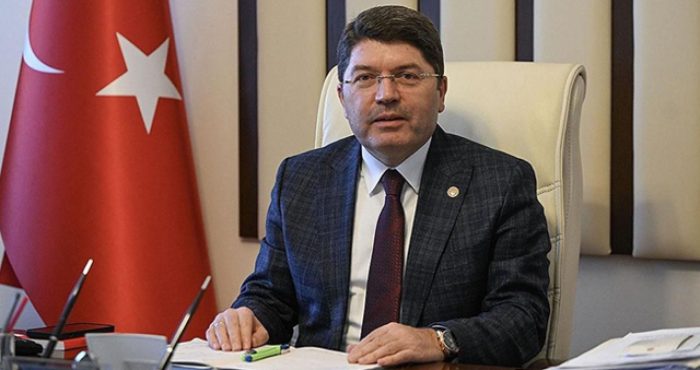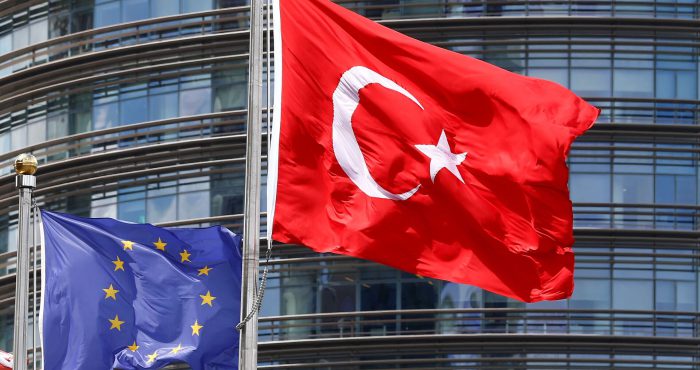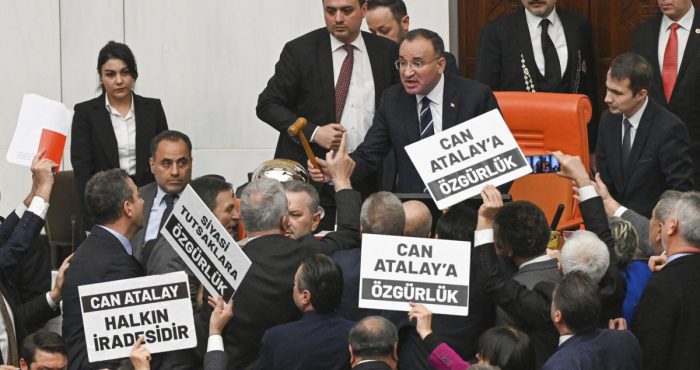The presidential system in the Turkish style was at least successful in forming the People’s and National alliances and bringing the six opposition parties around the table. However, it failed to provide sustainable solutions to the country’s fundamental problems and even created new and deeper problems. The solution depends on non-governmental organizations (NGOs) working voluntarily and putting pressure on politicians to pass the proposals they develop into law. However, it is a bitter realization that with the exception of women’s associations, which act in a very courageous and determined manner, most NGOs, like the business world too, are timid to the extent of being afraid.
As the author of the book Turkey’s Middle-Democracy Issues and How to Solve Them, the founding president of the Daha İyi Yargı Derneği (Better Justice Association) and the thought leader behind the work Turkish Judicial Reform A to Z, which presents innovative reform proposals on nine main issues, my right and my debt of gratitude to this nation, of which I am a son, obliges me to convey the following demands and questions to the six party leaders.
1. Commitment to getting rid of the moderate democracy
The fundamental problem of Türkiye is that it is a “middle democracy”. We identified this in Turkey’s Middle-Democracy Issues and How to Solve Them, which was adopted as a policy document by Türkonfed and pointed the way towards the solution.
One of the reasons that we are a moderate democracy is the anti-democratic, oligarchic structure of political parties. As six political leaders in the opposition, you propose a strong parliamentary system, but you do not propose a solution to the problem of moderate democracy. The choice between a presidential or a parliamentary system does not solve this problem. You are making do with the shameful democracy we have.
We expect you to commit to abolish the antiquated and anti-democratic delegate system in political parties, to ban block elections, and to limit the powers of the leader and the central administration to only what is necessary, clearly and with an explicit deadline.
2. Complete withdrawal of politics from the judiciary
The problems in democracy, governance, rule of law, education and economy in Türkiye have their roots in the judiciary. The main reason for the judiciary problem is that politics has intervened in the judiciary, tied its hands and rendered it incapable of performing its duties. An innovative and permanent solution to this problem is imperative—one that will ensure the full independence of the judiciary and the confidence of all. For this to be achieved, the interference of politics in the judiciary must be completely eliminated.
In the Six-Party Consensus, you propose that the political parties in the parliament elect half, i.e. six members, of the Council of Judges with a two-thirds majority, that more political views be represented and that the judiciary be further politicized.
Why do you not propose an arrangement to prevent the politicization of the judiciary completely, to ensure that no person, group or coalition can influence it, that it is transparent, that all of its decisions and actions are subject to judicial review and that it emphasizes merit?
Why do you say that you will open only some of the administrative decisions of the HCJP (High Council of Judges and Prosecutors) to judicial review? Why not all of them? Why don’t you consider giving everyone the right to file a lawsuit? Why don’t you design a court to hear these cases quickly? Why don’t you formulate a proposal to solve the problem of young and inexperienced judges being recruited on the basis of political references, by creating a mature, experienced and fully competent cadre of judges and prosecutors, as described even in Mecelle?
3. The obligation to compromise with your opponent: the age-old window of opportunity
Based on the fact that it has never happened in history, I think that no party or coalition on its own can achieve the majority required to change the constitution, and that you have to compromise with your opponent in order to return to a reinforced parliamentary system. This obligation may open a historic window of opportunity for Türkiye. Such a window will be opened only if politicians first solve the judicial problem.
The responsibility for realizing this lies with you, the politicians. Promise that you will not waste this opportunity. Reach a compromise with your interlocutors to resolve the judicial issue first. You are well aware that the rest of Türkiye’s problems can be solved if this is done.
4. Public commitment to solving the judicial problem
I hereby invite you to make the following commitments for a radical remedy to the judicial problem, clearly setting out the following points together with a clear roadmap:
- We will make the Supreme Council for the Judiciary quality-service orientated, fully independent, able to protect its independence and fully competent to perform its duties.
- We shall establish a permanent legal council, identify the needs of society on an up-to-date basis and make recommendations.
- Judges and prosecutors, like lawyers and notaries public, will establish their own independent democratic professional organizations.
- We will train lawyers who are competent enough to be able to compete with their modern contemporaries.
- We will adopt a modern dispute management approach in the judiciary and update archaic judicial procedures in a way that works well but produces quality service.
- We will resolve cases that take 4–5 years within 3–4 months at the latest.
- We will abolish the requirement for administrative authorities and institutions to authorize an investigation, ensure free judicial investigation of all offenses committed by public officials, and ensure the unconditional rule of law and full equality before the law for all public officials and politicians, including the untouchables.
5. A modern, efficient and stable state structure
I expect you to find innovative solutions to the problems of the ossified administrative structure of our country by actively cooperating with NGOs, and to develop a democratic social state structure at the level of its modern contemporaries.
The construction of a modern, democratic and stable social state requires the judiciary to be fully independent from the executive and politics and to be able to maintain its independence. This requires participation in political parties and governance to be facilitated, electoral thresholds to be reduced to as low as 1%, and a legislative composition to be established that ensures a healthy representation of the people in government.
The exercise of enormous state power by a single person leads not, of course, to stability in the executive but to corruption, arbitrariness and mismanagement. In order to fully and truly avoid this danger, it is imperative to separate the functions of policy-making, enforcement and regulation in the exercise of state power.
From this perspective, constitutional institutions representing the majority of the people, especially on issues requiring national consensus, and institutional platforms that facilitate and strengthen relations between the legislature and the executive should be established.
The government should be able to be overthrown if necessary for the stability of the executive, but the machinations of those who want to seize state power should be prevented. Executive stability and a high degree of legality can be ensured only by empowering the bureaucrats against the politicians in power. For this to be achieved, the judiciary must be able to freely investigate offenses without bureaucratic or political authorization or approval.
For this purpose, I wish you to develop a stable structure that ensures rule of law, taking into account the sample state structuring table that I have developed, open this to discussion among citizens, and pave the way for us to become an advanced state.




